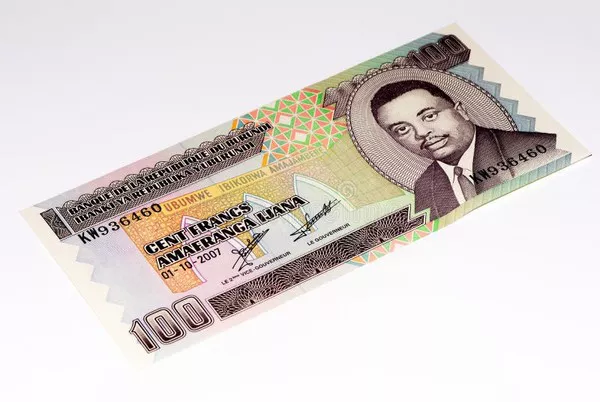Burundi, nestled in the heart of Africa, is a country with a rich cultural heritage and a unique economic landscape. As we delve into the intricacies of Burundi’s financial system, one cannot help but wonder: What is the currency called in this East African nation? In this article, we will explore the currency of Burundi, its history, significance, and the role it plays in the country’s economic development.
The Burundian Franc
The official currency of Burundi is the Burundian Franc, denoted by the currency code BIF and symbolized as FBu. This currency has been the legal tender of the country since its introduction in 1964, replacing the Belgian Congo franc. The Burundian Franc is managed by the Bank of the Republic of Burundi, which acts as the central bank and is responsible for issuing and regulating the currency.
Historical Context
To truly appreciate the significance of the Burundian Franc, it is essential to delve into the historical context of Burundi’s monetary system. Before gaining independence in 1962, Burundi was under Belgian colonial rule, and the currency in circulation was the Belgian Congo franc. However, with the establishment of its own central bank, Burundi sought to create a distinct identity for its financial system.
The introduction of the Burundian Franc in 1964 marked a pivotal moment in the country’s economic history. The decision to have its own currency reflected Burundi’s newfound sovereignty and its aspirations for economic self-determination. Since then, the Burundian Franc has played a crucial role in shaping the economic landscape of this African nation.
Design and Denominations
The Burundian Franc comes in various denominations, each featuring distinct designs and historical figures. The banknotes and coins in circulation showcase the cultural diversity and natural beauty of Burundi. From vibrant landscapes to depictions of significant historical events, the currency serves as a canvas for the nation’s identity.
Banknotes are issued in denominations of 500, 1,000, 2,000, 5,000, and 10,000 francs. Each note features portraits of prominent Burundian figures, such as kings, political leaders, and cultural icons, reflecting the country’s historical journey. The coins, on the other hand, come in denominations of 1, 5, 10, 50, 100, and 500 francs.
Economic Significance
The Burundian Franc is not merely a medium of exchange; it is a crucial component of Burundi’s economic framework. As the primary unit of currency, it facilitates trade, investment, and financial transactions within the country and beyond its borders. The stability and value of the Burundian Franc are closely monitored by the central bank to ensure a sound and robust financial system.
Moreover, the currency plays a vital role in shaping fiscal and monetary policies that drive economic development. The central bank uses tools such as interest rates and currency reserves to regulate the money supply, control inflation, and maintain a stable exchange rate. The effectiveness of these measures directly impacts the overall economic well-being of the nation.
Challenges and Opportunities
While the Burundian Franc has been a symbol of national pride and economic autonomy, it has also faced challenges over the years. Economic instability, political uncertainties, and external factors can impact the value of the currency, leading to fluctuations in exchange rates and inflation.
In recent times, Burundi has been working towards strengthening its economic foundations and attracting foreign investment. This presents both challenges and opportunities for the Burundian Franc. A stable and robust currency can instill confidence among investors and foster economic growth, while volatility can deter foreign participation.
The Future of the Burundian Franc
As Burundi navigates the complexities of the global economy, the future of the Burundian Franc remains an intriguing subject. The government and the central bank continue to implement policies that aim to enhance economic stability, promote sustainable development, and safeguard the value of the national currency.
International partnerships and collaborations also play a crucial role in shaping the trajectory of the Burundian Franc. Bilateral agreements, trade alliances, and financial assistance can contribute to the resilience of the currency in the face of global economic dynamics.
See Also: Burundi Franc (BIF) Currency: History, Symbol, Codes & Denominations
Conclusion
In conclusion, the Burundian Franc stands as a testament to Burundi’s journey towards economic independence and self-determination. With a rich history, unique designs, and a vital role in economic development, this currency reflects the spirit and identity of the nation. As Burundi charts its course in the global economy, the Burundian Franc remains a symbol of resilience, stability, and the unwavering spirit of the Burundian people.


